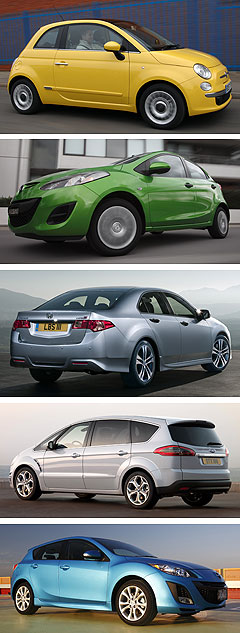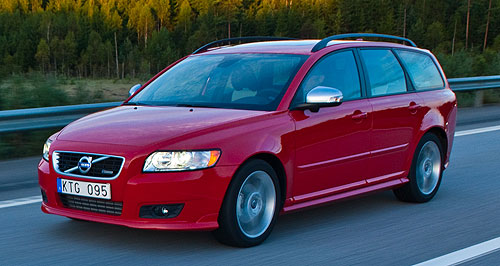News - General NewsVolvo tops German customer satisfaction surveyImprovement: Mercedes-Benz bucked the trend set by fellow German manufacturers Audi and BMW by improving its JD Power ownership survey rating, but was edged out of top spot by Volvo. Mercedes bucks trend as German car buyers turn on their own – and the Japanese20 Jun 2011 GERMAN motorists are less satisfied with their recent purchases, with much of their displeasure directed at two of their own marques – BMW and Audi – according to the latest JD Power and Associates ownership study. Bucking the trend in the online survey of 17,158 owners of two-year-old vehicles in Germany was Mercedes-Benz, but improved ratings and vehicle appeal were not enough for the three-pointed star to cling onto its place at the head of the rankings. This year’s top spot was taken by Volvo, which did not have an individual winning model but increased its ranking by 15 points this year to total 841 points (on a 1000-point scale) – just two points ahead of Mercedes, which topped the survey last year with 838 points. While Mercedes has improved its ratings for five successive years (from a low of only 799 points in 2006), rivals BMW and Audi have progressively lost ground in the annual Germany Vehicle Ownership Satisfaction Study. In just three years, BMW’s ranking has dropped from 845 to 815 points – slipping from second place to eighth – while Audi, despite its sales success, has dropped from 840 to 820, dropping two places to sixth. Overall, the industry average has also dropped in the same period, but only by eight points (to 807 points), while Volvo has matched Mercedes by improving in each of the last three years.  Category winners (from top): Fiat 500, Mazda2, Honda Accord, Ford S-Max, Mazda3. Category winners (from top): Fiat 500, Mazda2, Honda Accord, Ford S-Max, Mazda3.Other poor performers, according to owners, in the JD Power survey in recent years have been three Japanese brands that dominated the ranking for four years from 2006 to 2009. Daihatsu surprised by taking the number one ranking in 2009 with 843 points but this year dropped to a low 777. Honda topped the charts in both 2007 (with 848 points) and 2008 (849 points), but at least improved on last year’s survey, lifting slightly from 821 to 824. And the world’s number one car-maker – for now – Toyota continued a five-year decline in the rankings from top spot in 2006 with 851 points to only ninth place this year with 814. Bucking the trend for the Japanese was Mazda, which has held ground in recent years and took third place in the 2011 survey thanks to favourable consumer responses in the areas of quality and reliability. For the record, this year’s top 10 was: Volvo (841 points), Mercedes (839), Mazda (831), Mini (827), Honda (824), Audi (820), Skoda (820), BMW (815), Toyota (814) and Dacia (811). The only other brand to beat the 807-point industry average was Ford with 810. Below the average were German brands Volkswagen (806), Porsche (802) and Opel (793), but at the very bottom were Chevrolet (730), Citroen (774) and Mitsubishi (776). Fiat finished sixth from the bottom, despite a win for the Fiat 500 in the city-car category over the Hyundai i10. Other category winners included the Mazda2 (small car), Honda Accord (upper medium), Ford S-Max (MPV) and Mazda3 (lower medium), which posted the highest score of any model in the 2011 survey. Mercedes-Benz claimed three awards with the C-class (compact executive), E-class (executive luxury) and M-class (SUV), as well as first place for service satisfaction. According to JD Power, an overall nine-point decline in the vehicle quality and reliability factor was primarily due to a notable increase in reported problems, mostly in the areas of vehicle exterior and heating, ventilation and air conditioning. “The decline in vehicle quality and reliability, coupled with a decline in vehicle appeal, is an important reminder to manufacturers that the product is a critical driver of ownership satisfaction and will remain a key differentiator among brands,” said JD Power’s senior director of European automotive operations, Brian Walters.  Read more |
Click to shareGeneral News articlesResearch General News Motor industry news |















Facebook Twitter Instagram